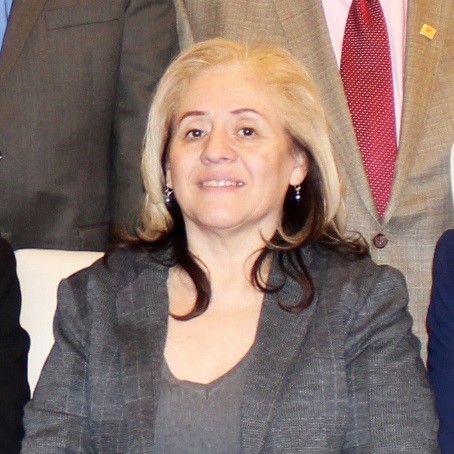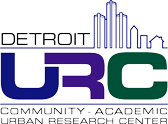Detroit URC Board Partner Spotlight: An interview with Lidia Reyes-Flores, Executive Director of Latino Family Services
 Latino Family Services provides a service system in Detroit that assists and supports families in their efforts to improve their social, health, and educational functioning; enhance their community environment; and increase economic self-sufficiency.
Latino Family Services provides a service system in Detroit that assists and supports families in their efforts to improve their social, health, and educational functioning; enhance their community environment; and increase economic self-sufficiency.
Executive Director Lidia Reyes-Flores recently spoke with us about her work and involvement in Community-Based Participatory Research (CBPR).
How did Latino Family Services first get involved with the Detroit URC?
Latino Family Services has been a part of the Detroit URC since it was established in 1995, and I got involved when I became the interim CEO in 2010. My background was in business, not the nonprofit world, so I had to learn all the ropes. Getting oriented to the Detroit URC was very refreshing because everyone is so supportive of each other. Everyone is so open with each other – it’s one place where I don’t feel stressed.
The first year I was on the Detroit URC Board, I was just trying to absorb as much as possible, learning about what everyone does and how they do it. As I got to know everyone, I learned what CBPR is all about. I come from a community-based family, so I’ve done wrap-around and distributive justice, which is part of what CBPR is – finding out what everybody does and how to integrate it into everybody’s life.
The Detroit URC is a great support system for everybody because you get so much from all the partners. You get involved and it becomes like a family. I could go to any one of the partners and ask for help with whatever I need. You feel comfortable enough to do that. I think it’s very rare in any kind of setting.
How does your involvement in CBPR help you advance the work of Latino Family Services?
It helps a lot. I enjoy getting out and talking to people about the research coming out of projects like Insure Detroit. At conferences, I like to talk to people and encourage them to check out our work.
The Detroit URC has come a long way. I want to make people more aware of the role the Detroit URC has played, let them know who they are and where they came from, who started all this, and where we’ve gone with it. Now that I’m working on health education projects, I meet people who don’t know what CBPR is. And I just tell them “you’re doing it and you don’t even know it.”
What benefits does Latino Family Services gain from being on the Detroit URC Board?
Resources. This connection between all of the partners that we have here, it’s like a resource center to me. If I need to do new work, I have people to ask. For example, Guy Williams, he’s one of the first people I met here. I didn’t know him, but he joined the board when I did, and we built a relationship based on that. I asked him for support getting some administrative skills in a nonprofit environment. I know I can go and ask partners for advice. That benefits me, and it benefits my organization. It’s a good feeling that you can help people – money couldn’t buy that.



